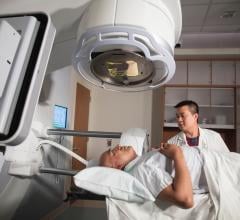April 18, 2007 - RxHub LLC announced that its network solutions, which can help make electronic prescribing possible for 160 million Americans, the Certification Commission for Healthcare Information Technology (CCHIT) has selected RxHub as one of the networks that will assist CCHIT in the validation of electronic prescribing related criteria.
CCHIT is a recognized certification body (RCB) in the U.S. for certifying health information technology products - an independent, nonprofit organization that tests electronic health records (EHRs) against criteria for functionality, interoperability and security.
ePrescribing is a key building block for EHRs. It provides patients' medication history and formulary and benefit information, which can be fed directly into patients' individual electronic health records because the two systems are interoperable. RxHub is a key piece of today's ePrescribing infrastructure, providing a standard communication "hub" where ePrescribing information can be exchanged accurately, safely and securely in a matter of seconds among all participating parties in the prescription delivery process. This includes physicians and other prescribers, health plans, pharmacy benefit managers, and pharmacies. RxHub network solutions cover nearly two out of three Americans.
RxHub will work with CCHIT and technology vendors to ensure that ePrescribing information can be exchanged correctly and securely with ambulatory EHRs pursuing CCHIT certification. This CCHIT "seal of approval" indicates that EHR products have successfully undergone standards-based testing for functionality, interoperability and security. By looking to EHRs with the CCHIT Certified seal, physicians and other providers can be assured that the technologies meet expected industry standards.
Mr. Little additionally noted that providing ePrescribing information to EHRs will increase patient safety and quality of care by reducing medication errors created in today's paper process by illegible handwriting and transcription mistakes. It also will provide more complete information at the point of care on patients' medical problems and medications they may be receiving from multiple providers. This in turn will help eliminate duplicate prescriptions and result in prescriptions that are potentially cheaper and more therapeutically appropriate.


 June 07, 2022
June 07, 2022 








